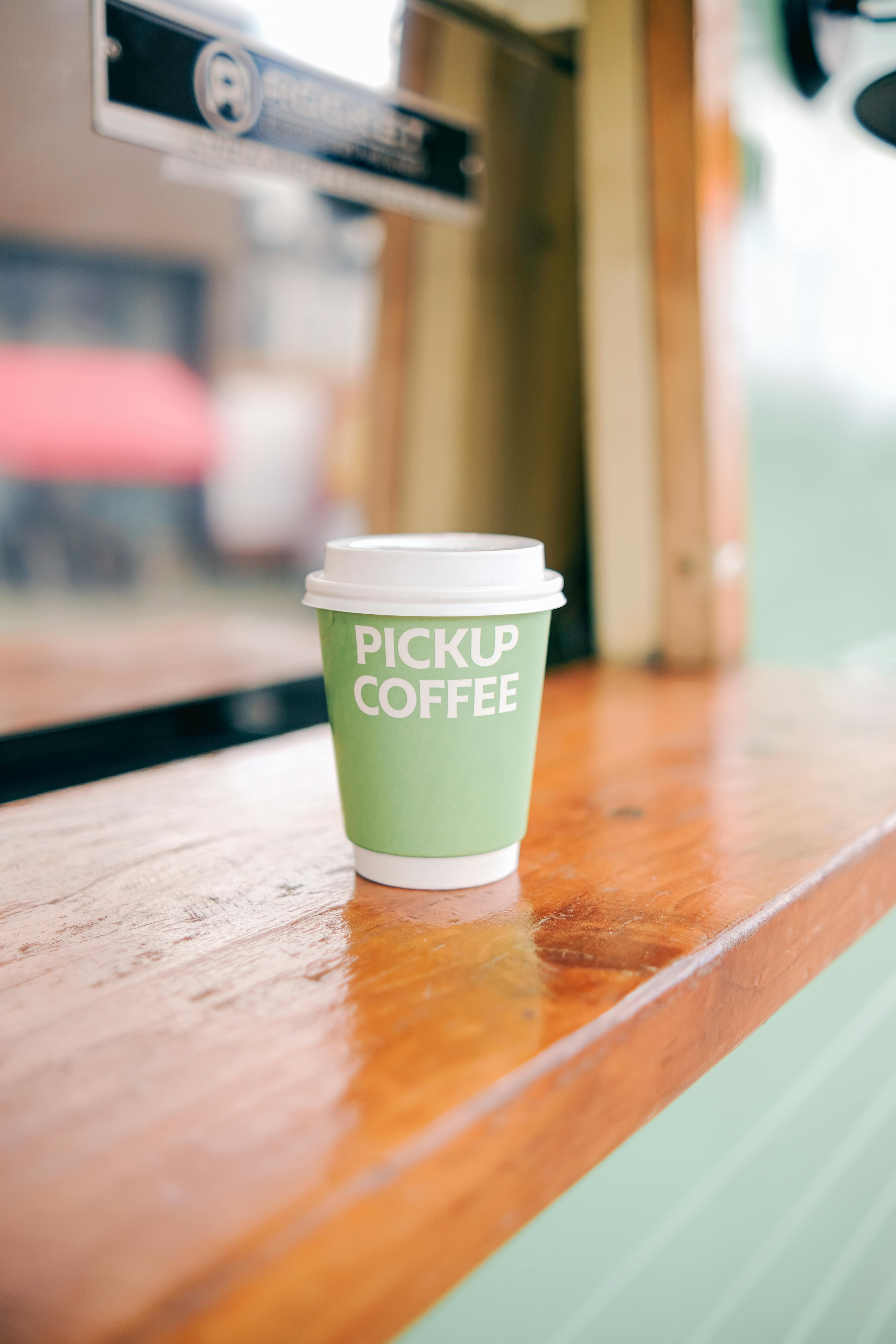Indulging in a freshly brewed cup of coffee can do so much more than just wake us up in the morning; it has the power to ignite our creativity and unleash our inner genius. At HopaCoffee.com, we understand the profound connection between coffee and creativity, which is why we strive to bring you an exceptional selection of premium coffee blends and flavors. From the rich, velvety notes of a dark roast to the smooth, vibrant flavors of a light roast, our curated collection is designed to invigorate your senses and inspire your imagination. Join us as we explore the fascinating relationship between coffee and creativity, and discover the endless possibilities that this sensational elixir can unlock. Delve into the world of coffee essentials with us and embark on a journey of discovery unlike any other. Welcome to our comprehensive article on the connection between coffee and creativity. At HopaCoffee.com, we are passionate about elevating your coffee experience and exploring the fascinating relationship between coffee and creative thinking. Join us as we take a journey through the history of coffee, delve into the effects of coffee on the brain, and uncover the ways in which coffee can enhance creativity in our modern lives.

The History of Coffee
Origins of Coffee
Coffee, as we know it today, has a rich and vibrant history that dates back centuries. It is believed to have originated in Ethiopia, where the first instances of coffee consumption can be traced back to the 9th century. Legends surround the discovery of coffee, with stories of a goat herder named Kaldi observing his goats becoming excited and energized after eating the berries from a certain tree. This led to the cultivation of coffee, and it eventually spread throughout the Arab world.
Spread of Coffee Cultivation
Coffee cultivation expanded rapidly after its discovery, with Arab traders introducing coffee to various parts of the world. It reached the Ottoman Empire in the 16th century and gained popularity among the elite. Coffeehouses, or “qahveh khaneh,” emerged as social and cultural hubs where people would gather to discuss politics, engage in intellectual debates, and savor the aromatic beverage. From the Middle East, coffee was introduced to Europe, America, and beyond, becoming a global phenomenon.
The Rise of Coffeehouses
Coffeehouses played a vital role in the dissemination of knowledge and exchange of ideas during the Renaissance and Enlightenment periods. These establishments fostered a sense of community and intellectual discourse, attracting artists, writers, philosophers, and scientists. The stimulating effects of coffee, combined with the vibrant atmosphere of coffeehouses, created an environment conducive to creativity and innovation. They became known as “penny universities,” as the price of a cup of coffee granted entry to a world of intellectual enrichment.
Coffee in Modern Times
Coffee remains an integral part of our daily lives in modern times. It has evolved from a luxurious import for the elite to a staple beverage for people worldwide. Coffeehouses have now transformed into trendy cafes and chains that offer a diverse range of coffee beverages, catering to various tastes and preferences. The popularity of coffee continues to grow, and its association with creativity and productivity has sparked curiosity among researchers and coffee enthusiasts alike.
How Does Coffee Affect the Brain?
Caffeine and Alertness
One of the primary ways coffee affects the brain is through the presence of caffeine. Caffeine is a natural stimulant that blocks adenosine receptors in the brain, inhibiting the onset of drowsiness and promoting alertness. By binding to these receptors, caffeine increases the firing of neurons, leading to heightened cognitive function and improved focus. This wakefulness-promoting effect of caffeine makes coffee a popular beverage for individuals seeking an energy boost.
Neurotransmitters and Mood
Beyond its impact on alertness, coffee also influences our mood by interacting with neurotransmitters in the brain. Caffeine blocks the action of adenosine, which in turn increases the release of other neurotransmitters like dopamine and norepinephrine. These chemicals are associated with feelings of pleasure, motivation, and enhanced mood. By modulating these neurotransmitters, coffee can have a positive impact on our overall well-being and emotional state.
Enhancing Cognitive Function
Coffee has long been lauded for its ability to enhance cognitive function. The stimulatory effects of caffeine can improve various aspects of brain performance, including memory, attention, and reaction time. Studies have shown that regular coffee consumption can boost cognitive abilities, making it easier to process information, retrieve memories, and perform complex mental tasks. This cognitive enhancement can have significant implications for creativity and problem-solving.
Effects on Memory
Memory is a crucial aspect of creativity, and coffee has been shown to have intriguing effects on memory function. Caffeine has been found to enhance both short-term and long-term memory, potentially improving the retention of information and the recall of ideas. This memory-enhancing property of coffee can be particularly beneficial for individuals engaged in creative endeavors that require the generation and organization of ideas.

Creativity and the Brain
Understanding Creativity
Creativity is a multifaceted concept that encompasses the ability to think divergently, generate novel ideas, and connect seemingly unrelated concepts. It is a cognitive process that involves various regions of the brain working together to produce original and valuable outcomes. Creative thinking is not limited to artistic endeavors but is also essential in problem-solving, innovation, and critical thinking across all domains.
The Role of the Brain in Creativity
The brain plays a fundamental role in the creative process. Multiple regions, including the prefrontal cortex, hippocampus, and temporal lobes, contribute to different aspects of creative thinking. The prefrontal cortex is responsible for executive functions, such as cognitive flexibility and idea generation. The hippocampus is involved in memory formation and retrieval, while the temporal lobes are responsible for associative thinking and the integration of ideas. These regions work together, along with numerous neurotransmitters, to facilitate the creative process.
Neurotransmitters and Creative Thinking
Several neurotransmitters are involved in creative thinking, and coffee’s impact on these chemicals can influence our creative capabilities. Dopamine, known as the “feel-good” neurotransmitter, is associated with motivation, reward, and novelty-seeking behavior. Caffeine, by increasing dopamine release, can enhance our motivation and drive to engage in creative tasks. Additionally, norepinephrine, another neurotransmitter influenced by coffee, can promote focus and cognitive flexibility, both essential aspects of creative thinking.
Factors Influencing Creativity
While the brain and neurotransmitters play a significant role in creativity, other factors can also influence our creative capacities. External factors such as the environment, social interactions, and emotional state can impact creative thinking. Internal factors like individual differences, personality traits, and personal experiences also contribute to creative abilities. Understanding these influences helps us uncover the complex relationship between coffee and creativity.
The Connection Between Coffee and Creativity
Caffeine as a Cognitive Enhancer
As we have already mentioned, caffeine, the primary active compound in coffee, acts as a cognitive enhancer. By stimulating the brain, caffeine can improve focus, attention, and mental stamina, all of which are crucial for creative thinking. The increased alertness and wakefulness provided by coffee can help individuals overcome mental blocks, push through challenges, and maintain consistent cognitive performance during creative tasks.
Stimulating Brain Activity
Coffee has been found to stimulate brain activity in areas associated with creativity. Functional Magnetic Resonance Imaging (fMRI) studies have shown that coffee consumption increases activity in the prefrontal cortex, hippocampus, and other regions involved in creative thinking. This heightened brain activity can facilitate idea generation, the ability to think outside the box, and the formation of new associations, all essential elements of the creative process.
Improving Focus and Concentration
Sustained focus and concentration are vital for creativity, enabling individuals to immerse themselves in their work and explore ideas deeply. Coffee’s ability to enhance focus can be a valuable asset for creative individuals, allowing them to stay engaged in their creative pursuits for longer periods. By improving attention and preventing mental fatigue, coffee can help maintain the mental stamina required for sustained creative output.
Boosting Mood and Motivation
Coffee’s impact on mood and motivation can also contribute to enhanced creativity. A positive mood is known to foster creative thinking, while motivation fuels the drive to explore and seek out new ideas. The dopamine release triggered by coffee consumption can elevate mood, making individuals more receptive to creative stimuli and fostering a positive mindset. This boost of motivation and mood can be particularly beneficial during challenging or complex creative endeavors.

Research on Coffee and Creativity
Studies on the Relationship
Several scientific studies have explored the relationship between coffee consumption and creativity. Researchers have examined the cognitive effects of caffeine and its impact on divergent thinking, problem-solving, and idea generation. While the results are promising, it is essential to note that individual responses to coffee can vary, and factors such as tolerance, dosage, and duration of consumption may influence its effects on creativity.
Benefits of Coffee for Creative Tasks
Studies have demonstrated that coffee can have tangible benefits for specific creative tasks. For example, research has shown that moderate caffeine consumption can enhance idea generation and creative problem-solving. The increased cognitive flexibility and mental agility promoted by coffee can enable individuals to approach challenges from different perspectives and overcome creative blocks.
Exploring Different Types of Coffee
Different types of coffee, such as espresso, drip coffee, or cold brew, may have varying effects on creativity. The specific brewing methods and the ratio of coffee to water can impact factors such as caffeine content and taste. Exploring different types of coffee allows individuals to find the blend that best suits their preferences and enhances their creative thinking.
Coffee vs. Other Beverages
While coffee is often celebrated for its stimulating properties, it is worth considering how it compares to other beverages concerning creativity. While caffeine is the most widely recognized cognitive enhancer, other substances like green tea, black tea, and certain herbal infusions may also provide a boost to mental performance. Exploring these alternatives can offer creative individuals a range of options to suit their individual preferences and sensitivities.
Finding the Right Balance
Optimal Caffeine Consumption
Finding the optimal level of caffeine consumption for creativity is a personal journey. While moderate caffeine intake has been linked to cognitive enhancement, excessive consumption can lead to side effects such as jitters, restlessness, and disrupted sleep. It is important to listen to your body’s signals and find a balance that enhances your creative output without causing undesirable effects.
Managing Tolerance and Dependence
Regular coffee consumption can lead to the development of tolerance and dependence on caffeine. When this happens, it may be necessary to adjust coffee intake or consider temporary breaks to maintain the desired cognitive effects. Understanding your individual tolerance levels and being mindful of potential caffeine dependence can help ensure a healthy and sustainable relationship with coffee.
Timing Your Coffee Intake
The timing of coffee consumption can affect its impact on creativity. Many individuals find that consuming coffee in the morning provides a kickstart to their creative endeavors, while others prefer a midday boost to overcome the afternoon slump. Experimenting with the timing of coffee intake can help identify the optimal window for enhancing creative thinking without disrupting sleep or causing overstimulation.
Understanding Personal Sensitivities
Individual sensitivities to coffee can vary widely. Some individuals may be more sensitive to the effects of caffeine, while others may experience adverse reactions to certain compounds present in coffee. Monitoring your personal responses to coffee and being aware of any sensitivities or allergies can help tailor your coffee consumption to optimize creative thinking.
Alternative Beverages for Creativity
Tea and Creativity
Tea, like coffee, contains caffeine and has its own unique flavors and brew methods. While tea may provide a milder stimulation compared to coffee, it can still promote mental alertness and enhance cognitive function. Additionally, tea contains other compounds such as L-theanine, which can promote a state of relaxed focus. Exploring different tea varieties, such as green tea or matcha, can offer alternative options for creativity.
Herbal Infusions as a Coffee Substitute
For those seeking a coffee substitute or looking for a caffeine-free option, herbal infusions can be a wonderful choice. Herbal teas, such as chamomile, peppermint, or hibiscus, offer a range of flavors and potential health benefits. While lacking the stimulating effects of caffeine, these infusions can still provide a soothing and relaxing experience, creating a conducive environment for creative thinking.
Exploring Other Stimulants
Aside from coffee and tea, there are various other stimulant substances that individuals may explore to enhance their creativity. Substances like cocoa, dark chocolate, or certain adaptogens, like ginseng or Rhodiola rosea, have been associated with improved cognitive function and may offer alternative options for creativity. However, it is important to research and understand the potential effects and interactions before incorporating these substances into your routine.
Non-Caffeinated Options
Not everyone may desire or tolerate the effects of caffeine. Non-caffeinated beverages such as decaffeinated coffee, fruit infusions, or plain water can still contribute to increased hydration and provide a refreshing break during creative endeavors. Staying adequately hydrated is vital for overall brain function and cognitive performance, so maintaining a balance between caffeinated and non-caffeinated options is crucial.
Coffee Rituals and Creativity
Morning Coffee Routine
For many, the morning coffee routine is a revered tradition that helps set the tone for the day ahead. Enjoying a cup of coffee in the morning can serve as a ritualized pause, a moment to gather thoughts and set creative intentions for the day. The act of preparing and savoring a cup of coffee can be a mindful experience that primes the brain for creative thinking and encourages a sense of focus and purpose.
Coffee as a Creative Catalyst
Coffee has been enjoyed as a creative catalyst for centuries, and for good reason. The act of sipping on a warm cup of coffee can create a sense of comfort and familiarity, providing a sense of grounding in the creative process. The aroma and taste of coffee can evoke memories, inspire nostalgia, and create an ambiance conducive to deep thought and expression.
Social Aspects of Coffee
Coffee has always been a beverage that brings people together. Whether it’s meeting friends for a coffee, engaging in stimulating conversations at coffeehouses, or brainstorming ideas over a cup of joe, the social aspect of coffee can nurture creativity. Interacting with others, sharing ideas, and building connections can spark inspiration, foster collaboration, and expand perspectives, all essential elements of the creative process.
Creating Environments for Inspiration
Coffee can serve as a symbol of inspiration and be used to create environments conducive to creative thinking. Many individuals find that having a designated creative space, adorned with comforting elements such as personalized mugs, artwork, or plants, can stimulate their imagination. Curating an inspiring environment that incorporates coffee rituals can enhance the overall creative experience and set the stage for innovative ideas.
Beyond Coffee: Lifestyle Factors for Creativity
Sleep and Rest
Quality sleep and adequate rest are integral components of maintaining and supporting a creative mind. Sleep is essential for consolidating memories, promoting cognitive clarity, and allowing the brain to engage in creative problem-solving during the subconscious state. Prioritizing a consistent and restful sleep routine can have a profound impact on overall creative output and mental well-being.
Physical Activity
Engaging in regular physical activity can have significant benefits for creativity. Exercise promotes increased blood flow to the brain, providing essential oxygen and nutrients necessary for optimal cognitive function. Additionally, physical activity can stimulate the release of endorphins, neurotransmitters associated with improved mood and reduced stress, both of which can enhance creative thinking.
Nutrition and Brain Function
Proper nutrition plays a vital role in brain function and creative thinking. Consuming a balanced diet that includes fruits, vegetables, whole grains, and healthy fats provides the necessary nutrients for optimal cognitive performance. Omega-3 fatty acids, found in fatty fish and flaxseeds, have been associated with improved cognitive function and may contribute to enhanced creative abilities.
Stress Management
Managing stress levels is crucial for maintaining creativity. Chronic stress can suppress creative thinking and hinder problem-solving abilities. Engaging in stress-reducing practices such as mindfulness, meditation, or hobbies can create a conducive environment for ideas to flow and creativity to flourish. Coffee, when consumed mindfully and in moderation, can complement these stress-management techniques and further support the creative process.
Conclusion
The complex relationship between coffee and creativity is an ongoing topic of exploration, with numerous studies and personal experiences providing insights into their interconnectedness. Understanding the history of coffee, the effects of caffeine on the brain, and the factors influencing creativity allows us to navigate the world of coffee and harness its potential as a tool for enhancing our imaginative capacities.
While coffee can undoubtedly stimulate cognitive function, enhance focus, and boost mood, it is essential to find the right balance and be mindful of individual sensitivities. Exploring alternative beverages, embracing coffee rituals, and considering other lifestyle factors that support creativity can further augment the creative experience.
Ultimately, the connection between coffee and creativity is a deeply personal one. We encourage you to embrace your own unique journey, experiment with different approaches, and discover the role that coffee can play in elevating your creative output. So go ahead, grab a cup of your favorite brew, and let the creativity flow!
